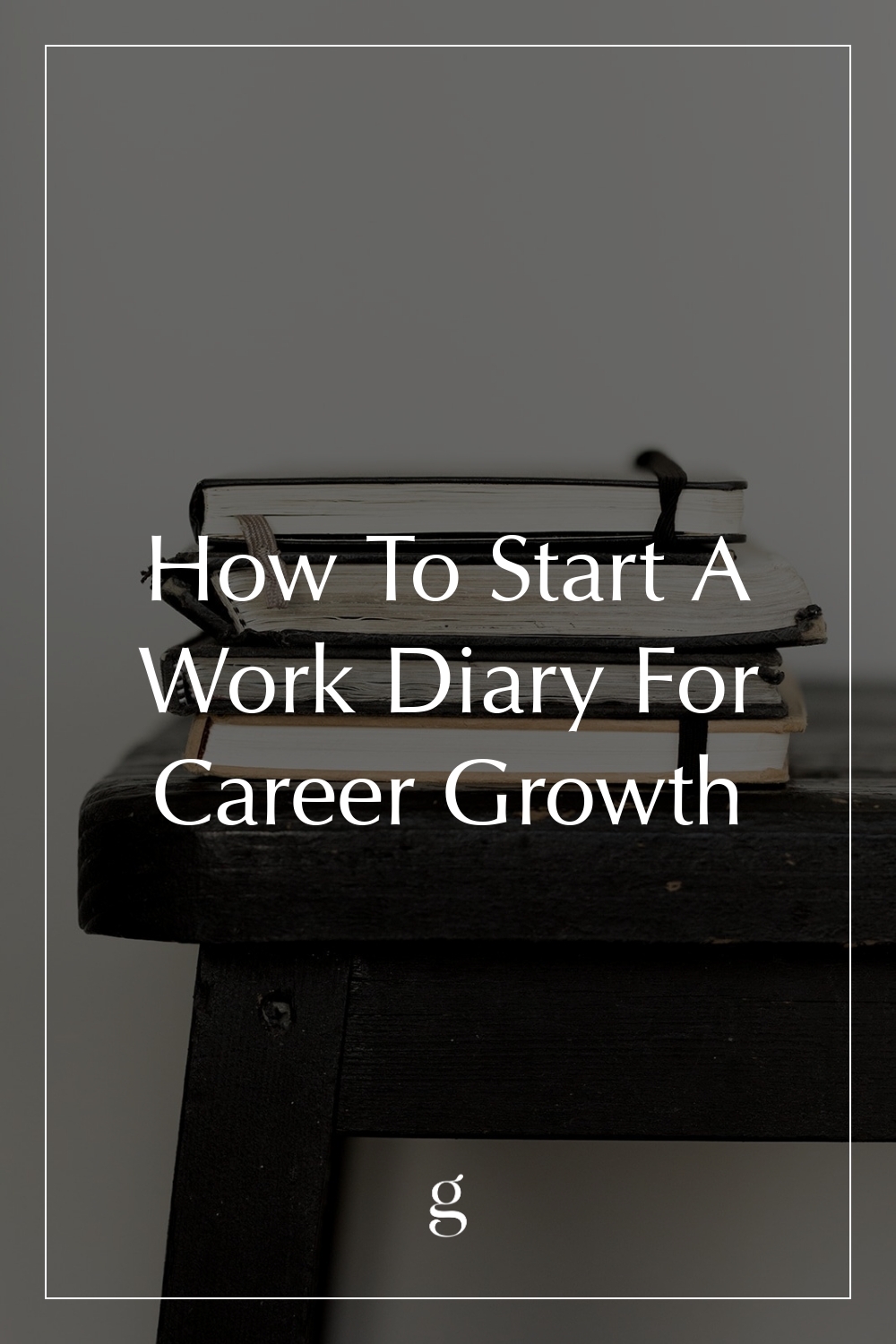
How To Start A Work Diary For Career Growth
Journaling for Professional Development
My love of journaling is well-documented. In my youth, I kept sporadic diaries about pivotal events in my prepubescent life, but I didn’t feel connected to the practice until I arrived into adulthood. After a couple of years of journaling for my personal wellness, I’ve decided to take it to the next level: This year, I’m keeping a work diary.
“After a couple of years of journaling for my personal wellness, I’ve decided to take it to the next level: This year, I’m keeping a work diary.”
While “diary” may evoke the image of a tiny lined notebook with a delicate lock (for our US-based audience, at least), a work diary can take many forms. Call it a journal, if you will, or call it a planner. My work diary is stretched across analog and digital spaces—my monthly and quarterly goals live in a Google doc, and I use a planner for my daily and weekly tasks based on those goals. This is the physical planner that I use, but here are some of our other favorite mindful journals. If analog is not your style, consider the digital corkboard Trello. Alternatively, some people successfully use a bullet journal to record their progress.
It doesn’t matter what you land on; what matters is the intention behind why you’re deciding to keep these records. Let’s dive in!
Why should you keep a work diary?
If you’ve ever created a resume, you know how difficult it is to move beyond jargony phrases like “Implemented processes and strategies for growth.” (Note: do not use this phrase, ever.) Concise, specific details are what capture hiring managers’ attention.
Even if you’re not on the job search, you can benefit from tracking your progress thoughtfully when it comes time for yearly performance reviews or when you’re up for a promotion. Being able to remind your managers the exact, quantifiable benefits you bring to the company can make all the difference.
But specific details of our accomplishments can get lost in our day-to-day without proper documentation. A work diary, then, can be the ultimate tool for you to accurately outline your achievements. Plus, it’ll keep you accountable and focused on your career goals instead of working reactively to whatever comes up during your day.
“A work diary can be the ultimate tool for you to accurately outline your achievements.”
Ready to get writing? Here’s what you should do before you get started, and how to structure your check-ins so that you can accurately record your progress.
Before You Start
A work diary can be as simple as “writing down what happened today,” although for the process to be helpful in the long run, it requires a bit more structure. Start by outlining your work goals in an accessible document. You may even share this document with your immediate supervisor for feedback and in case there are any resources you’ll need to feel supported in meeting these goals.
Open that document every Monday morning as you plan your work. Each week, create a list of the tasks that will help you reach the larger goals you’ve outlined in addition to other daily tasks that come up along the way.
Now that you have a structure for what you intend to do, you can get started on tracking what it is that you’re actually doing. The point in having both of these lists is to help you hold yourself accountable; the more you practice setting goals and recording your progress, the better you’ll be at predicting your own pace and capacity.
What To Do Daily
Do you ever have those days when you wonder, “what did I do today?” Yeah, definitely, me neither. 🙄 Creating a to-do list and recording what I’ve accomplished has helped me end each day with a more solid grasp of the progress I’ve made.
“Instead of sending one last email, jot down your biggest accomplishment from the day.”
When you begin work in the morning, take three minutes to write down one, two, or three of the most important tasks you need to work on. Then, instead of sending one last email or Slack message before you shut down your computer for the night, jot down your biggest accomplishments from the day. You can review these weekly to make sure you’re spending your time on the actual tasks that you’ve meant to accomplish. If you’re way off base, then maybe it’s time to re-evaluate your goals or, maybe, readjust the purpose of your role.
What To Do Weekly And Monthly
Right now, copy and paste the questions below into a weekly or monthly recurring calendar invite (better yet, paste it into a Google doc and put the link in the calendar invite). You can set it to pop up right before you start work so that it doesn’t interrupt your workflow by popping up in the middle of the day. If you can, put these answers in a document that you own personally, in case of an unforeseen job change.
What accomplishments am I proud of this week or month?
What positive feedback have I received recently?
What projects am I working on right now?
This will remind you to touch base with yourself on your progress, and if you save it all together, you can see how you’ve grown over the months.
What To Do Each Quarter
When review time comes around, you’ll have plenty of raw data to pull insight from—but a laundry list of completed tasks isn’t a compelling story.
“Schedule out quarterly events where you can take 30 minutes or an hour to review all of your notes from the past few months.”
Since you already have your calendar handy, go ahead and schedule out quarterly events where you can take 30 minutes or an hour to review all of your notes from the past few months. Here are a few questions to ask during this meeting with yourself:
Did I accomplish my quarterly goals?
What were the highlights from the past few months?
What failures did I experience—and what did I change afterward?
What new skills have I learned?
What new skills do I want to cultivate?
This is also the time to think deeply about your goals for upcoming quarters. You can revise as needed, based on your progress from this quarter. If a job change is on your radar, you can add a “more of this, less of that” exercise to this check-in as well, so you can track how you’d like your role to evolve.
These check-ins also offer you a space to ask yourself if this job is, and continues to be, the best fit for you. If it feels like it’s time to move on, your work diary will be right there beside you to help you fill out your resume once again.
How do you keep track of your progress at work? Share your tips in the comments below!
RELATED READING
Emily Torres is the Editorial Director at The Good Trade. Born and raised in Indiana, she studied Creative Writing and Business at Indiana University. You can usually find her in her colorful Los Angeles apartment journaling, caring for her rabbits, or gaming.






